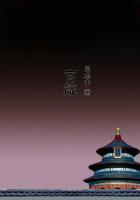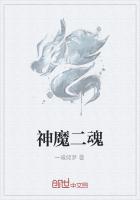In the Second Part it is the spirit rather than the incidents of the chivalry romances that is the subject of the burlesque. Enchantments of the sort travestied in those of Dulcinea and the Trifaldi and the cave of Montesinos play a leading part in the later and inferior romances, and another distinguishing feature is caricatured in Don Quixote's blind adoration of Dulcinea. In the romances of chivalry love is either a mere animalism or a fantastic idolatry. Only a coarse-minded man would care to make merry with the former, but to one of Cervantes' humour the latter was naturally an attractive subject for ridicule. Like everything else in these romances, it is a gross exaggeration of the real sentiment of chivalry, but its peculiar extravagance is probably due to the influence of those masters of hyperbole, the Provencal poets. When a troubadour professed his readiness to obey his lady in all things, he made it incumbent upon the next comer, if he wished to avoid the imputation of tameness and commonplace, to declare himself the slave of her will, which the next was compelled to cap by some still stronger declaration; and so expressions of devotion went on rising one above the other like biddings at an auction, and a conventional language of gallantry and theory of love came into being that in time permeated the literature of Southern Europe, and bore fruit, in one direction in the transcendental worship of Beatrice and Laura, and in another in the grotesque idolatry which found exponents in writers like Feliciano de Silva. This is what Cervantes deals with in Don Quixote's passion for Dulcinea, and in no instance has he carried out the burlesque more happily. By keeping Dulcinea in the background, and ****** her a vague shadowy being of whose very existence we are left in doubt, he invests Don Quixote's worship of her virtues and charms with an additional extravagance, and gives still more point to the caricature of the sentiment and language of the romances.
One of the great merits of "Don Quixote," and one of the qualities that have secured its acceptance by all classes of readers and made it the most cosmopolitan of books, is its simplicity. There are, of course, points obvious enough to a Spanish seventeenth century audience which do not immediately strike a reader now-a-days, and Cervantes often takes it for granted that an allusion will be generally understood which is only intelligible to a few. For example, on many of his readers in Spain, and most of his readers out of it, the significance of his choice of a country for his hero is completely lost. It would he going too far to say that no one can thoroughly comprehend "Don Quixote" without having seen La Mancha, but undoubtedly even a glimpse of La Mancha will give an insight into the meaning of Cervantes such as no commentator can give. Of all the regions of Spain it is the last that would suggest the idea of romance. Of all the dull central plateau of the Peninsula it is the dullest tract. There is something impressive about the grim solitudes of Estremadura; and if the plains of Leon and Old Castile are bald and dreary, they are studded with old cities renowned in history and rich in relics of the past. But there is no redeeming feature in the Manchegan landscape; it has all the sameness of the desert without its dignity; the few towns and villages that break its monotony are mean and commonplace, there is nothing venerable about them, they have not even the picturesqueness of poverty; indeed, Don Quixote's own village, Argamasilla, has a sort of oppressive respectability in the prim regularity of its streets and houses; everything is ignoble; the very windmills are the ugliest and shabbiest of the windmill kind.
To anyone who knew the country well, the mere style and title of "Don Quixote of La Mancha" gave the key to the author's meaning at once. La Mancha as the knight's country and scene of his chivalries is of a piece with the pasteboard helmet, the farm-labourer on ass-back for a squire, knighthood conferred by a rascally ventero, convicts taken for victims of oppression, and the rest of the incongruities between Don Quixote's world and the world he lived in, between things as he saw them and things as they were.
It is strange that this element of incongruity, underlying the whole humour and purpose of the book, should have been so little heeded by the majority of those who have undertaken to interpret "Don Quixote." It has been completely overlooked, for example, by the illustrators. To be sure, the great majority of the artists who illustrated "Don Quixote" knew nothing whatever of Spain. To them a venta conveyed no idea but the abstract one of a roadside inn, and they could not therefore do full justice to the humour of Don Quixote's misconception in taking it for a castle, or perceive the remoteness of all its realities from his ideal. But even when better informed they seem to have no apprehension of the full force of the discrepancy. Take, for instance, Gustave Dore's drawing of Don Quixote watching his armour in the inn-yard. Whether or not the Venta de Quesada on the Seville road is, as tradition maintains, the inn described in "Don Quixote," beyond all question it was just such an inn-yard as the one behind it that Cervantes had in his mind's eye, and it was on just such a rude stone trough as that beside the primitive draw-well in the corner that he meant Don Quixote to deposit his armour. Gustave Dore makes it an elaborate fountain such as no arriero ever watered his mules at in the corral of any venta in Spain, and thereby entirely misses the point aimed at by Cervantes. It is the mean, prosaic, commonplace character of all the surroundings and circumstances that gives a significance to Don Quixote's vigil and the ceremony that follows.
Cervantes' humour is for the most part of that broader and ******r sort, the strength of which lies in the perception of the incongruous.















